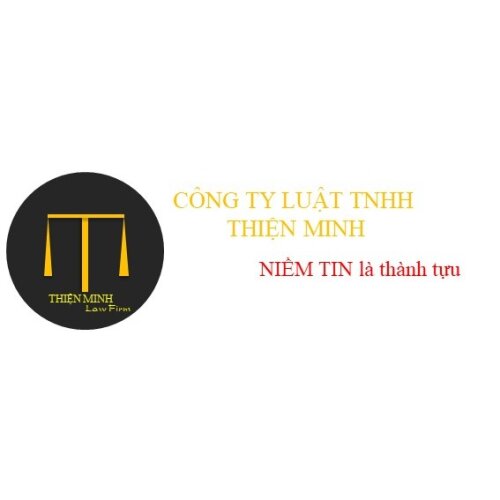Best Inheritance Law Lawyers in Da Nang
Share your needs with us, get contacted by law firms.
Free. Takes 2 min.
List of the best lawyers in Da Nang, Vietnam
1. About Inheritance Law in Da Nang, Vietnam
Inheritance law in Da Nang follows Vietnam's Civil Code, which governs who can inherit, how assets are divided, and how estates are managed after death. The city relies on national rules, with local procedures for notarial acts and court involvement when disputes arise. In practice, most straightforward transfers are handled through notaries, while complicated cases go to the People’s Court.
The framework focuses on both intestate succession (when there is no will) and testamentary succession (when a valid will exists). Heirs include spouses, children, and aged parents, with reserved portions determined by law. In Da Nang, real estate and land use rights typically require formal documentation and, if contested, a court or notary process to ensure validity.
“The Civil Code sets out the order of legal heirs, reserved portions, and intestate distribution, forming the backbone of inheritance procedures across Vietnam.”Source: Civil Code 2015 and related implementing documents - thuvienphapluat.gov.vn
2. Why You May Need a Lawyer
Inheritance matters in Da Nang often require precise legal steps and careful documentation. A lawyer can help you avoid common mistakes that delay estates or lead to costly disputes.
- Disputes among heirs over shares - Siblings in Da Nang disagree on how to split a coastal villa and several condo units believed to be jointly owned. A lawyer can help negotiate a settlement or prepare a court filing to resolve the matter.
- Validity questions for a will - A parent in Da Nang writes a will abroad and dies before it is properly authenticated in Vietnam. An attorney can assess whether the will meets local formal requirements and assist with probate.
- Real estate transfers requiring land documentation - A deceased owner held land use rights in Da Nang do with a missing title chain. Legal counsel can coordinate with the land registry and notary to secure a clear transfer path.
- Estate administration for overseas heirs - An heir living outside Vietnam needs guidance on Vietnamese inheritance rules and cross-border transfer procedures for Vietnamese real estate.
- Notary and will authentication needs - You want a legally binding will or a formal estate agreement recorded by a certified notary public in Da Nang.
- Procedural steps after a death - The family must assemble documents, determine who has rights, and decide whether to pursue a court proceeding or a notarized settlement.
3. Local Laws Overview
The inheritance framework in Da Nang is governed by national laws implemented across Vietnam. The core rules come from the Civil Code, with procedural and notarial support provided by related statutes and regulations.
Civil Code of Vietnam (Bộ luật Dân sự năm 2015) - Establishes the rules for intestate and testamentary succession, the order of heirs, and reserved portions. It became effective on 1 January 2017 and remains the primary source for inheritance rights in Da Nang. See official text on government legal portals for exact articles on succession.
Notary Law (Luật Công chứng) - Governs notarization of wills and estate documents, including the formalities needed to transfer land use rights when a will or agreement is involved. Notary services in Da Nang are provided by certified public notaries under this law. Refer to official notarial guidance for document requirements and authentication steps.
Civil Procedure Code (Luật Tố tụng Dân sự) - Sets out the procedures for inheritance disputes brought before a court, including filing timelines and evidence standards. It supports the probate and dispute resolution processes in Da Nang’s judicial system. Check the text for articles dealing with probate and family inheritance actions.
“Vietnam's inheritance framework relies on the Civil Code for substantive rights and on the Civil Procedure Code for litigation processes.”Source: Civil Code 2015, Notary Law, Civil Procedure Code - thuvienphapluat.gov.vn; Government portals: chinhphu.vn
4. Frequently Asked Questions
What is inheritance under the Vietnamese Civil Code?
Inheritance determines who receives a deceased person’s assets under law or a valid will. It also outlines the rights of spouses and children and how to handle assets like land in Da Nang.
How do I start an inheritance case in Da Nang if there is a dispute?
Begin by consulting a lawyer to assess the will and shares. Then file a case at the Da Nang People’s Court or pursue a notarized settlement, depending on the dispute type.
When does a will need probate in Da Nang?
A will typically needs probate if it transfers ownership of real property or significantly affects estate shares. Notarized wills may streamline the process but still require validation.
Where do I file a probate or inheritance dispute in Da Nang?
Probate or disputes are filed with the local People’s Court that has jurisdiction over the deceased’s place of residence or where assets are located. Notarization can occur at a certified notary office in Da Nang.
Why might a court be involved in inheritance matters in Da Nang?
Courts intervene when there is a dispute over shares, a will validity challenge, or a contested land transfer that cannot be resolved through negotiation or notarization.
Can foreigners inherit property in Da Nang?
Yes, foreigners may inherit under Vietnamese law with certain restrictions, particularly on land use rights. Legal counsel helps navigate residency, property, and registration requirements.
Should I hire a lawyer to contest a will or manage an estate in Da Nang?
Engaging a lawyer is advisable for contested wills, complex asset portfolios, or multi-heir estates. A lawyer can protect your rights and manage court or notary filings efficiently.
Do I need to notarize a will for it to be valid in Da Nang?
Notarization strengthens the will’s legal standing, but validity also depends on compliance with the Civil Code and proper execution under Vietnamese law.
Is there an inheritance tax in Vietnam that affects Da Nang estates?
Vietnam does not impose a general inheritance tax on individuals, but you should verify any local charges or administrative fees related to estate handling.
How long does the inheritance process typically take in Da Nang?
Simple probate may take several months, while complex disputes can extend to 6-12 months or longer depending on evidence and court backlogs.
How much does it cost to hire a lawyer for inheritance in Da Nang?
Costs vary with case complexity and lawyer experience. Expect consultation fees, filing fees, and potential court or notary charges for essential services.
What is the difference between intestate succession and a will in Da Nang?
Intestate succession applies when there is no will, following statutory order of heirs. A will allows the deceased to designate beneficiaries and specific asset transfers.
5. Additional Resources
- Ministry of Justice (Vietnam) - Provides official guidance on notary services, inheritance procedures, and civil law interpretation. https://moj.gov.vn/
- Government Portal (Chinh phu) - Central government information on legal reforms, public notices, and nationwide inheritance rules. https://www.chinhphu.vn/
- Vietnam Civil Law Resources (Government Portal) - Official repository and references for the Civil Code and related statutes. https://www.thuvienphapluat.gov.vn/
- Local context for Da Nang - Da Nang City official portals provide directions for local notaries, court contacts, and civil procedure notices. https://danang.gov.vn/
6. Next Steps
- Identify your objective - Decide whether you need to probate a will, settle intestate shares, or contest a document. Complete a basic asset list for Da Nang properties.
- Gather core documents - Collect death certificates, family register books (sổ hộ khẩu), birth certificates, marriage certificates, and land documents (sổ đỏ) if real estate is involved.
- Consult a Da Nang lawyer - Schedule an initial appointment with a qualified luat su (lawyer) who specializes in inheritance and civil matters in Da Nang.
- Decide on a path - If a will exists and is valid, consider notary authentication; if disputes arise, prepare for court proceedings with your attorney.
- Prepare your filing package - Assemble all documents, translations if needed, and any evidence of asset ownership for submission to the appropriate authority.
- Submit to the appropriate authority - File with the local notary for wills, or with the Da Nang People’s Court for probate or disputes, following your lawyer’s guidance.
- Follow up on timelines - Track processing time, respond to requests for additional information, and monitor deadlines set by the notary office or court.
Lawzana helps you find the best lawyers and law firms in Da Nang through a curated and pre-screened list of qualified legal professionals. Our platform offers rankings and detailed profiles of attorneys and law firms, allowing you to compare based on practice areas, including Inheritance Law, experience, and client feedback.
Each profile includes a description of the firm's areas of practice, client reviews, team members and partners, year of establishment, spoken languages, office locations, contact information, social media presence, and any published articles or resources. Most firms on our platform speak English and are experienced in both local and international legal matters.
Get a quote from top-rated law firms in Da Nang, Vietnam — quickly, securely, and without unnecessary hassle.
Disclaimer:
The information provided on this page is for general informational purposes only and does not constitute legal advice. While we strive to ensure the accuracy and relevance of the content, legal information may change over time, and interpretations of the law can vary. You should always consult with a qualified legal professional for advice specific to your situation.
We disclaim all liability for actions taken or not taken based on the content of this page. If you believe any information is incorrect or outdated, please contact us, and we will review and update it where appropriate.









